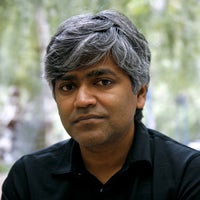Discusses the role of Doctors Without Borders in alleviating the gap in access to health care that affects people in low-and middle-income countries globally
December 10, 2012
BIO
Dr. Unni Krishnan Karunakara was appointed International President of MSF in June 2010. His first engagement in MSF was in 1995, when he was tasked with setting up a tuberculosis control programme in Jijiga, Ethiopia. He went on to become Medical Coordinator for MSF’s activities in Azerbaijan, providing basic health care services to forced migrants from Nagorno-Karabakh, in Brazil for health care aimed at the indigenous population in the Amazonas province, and for a sleeping sickness programme in the Republic of Congo.
In 2002, Dr. Karunakara joined the Public Health Department of MSF in Amsterdam, advising country programmes in the Middle East, southern Africa and South and Central America, and three years later became Medical Director of MSF’s Campaign for Access to Essential Medicines. In 2007, he was part of the medical emergency response team that treated victims of cyclone Sidr in Mathbaria, Bangladesh.
Dr. Karunakara received his medical degree from Kasturba Medical College in India and degrees in public health from Yale and Johns Hopkins Universities in the United States. He has held various academic and research fellowships at universities in South Africa, Zimbabwe, Uganda, Germany and the United Kingdom, focusing on the demography of forced migration and the delivery of health care to neglected populations affected by conflict, disasters and epidemics.
Since 2008, Dr. Karunakara worked at Columbia University, USA, as Deputy Director of Health for the Millennium Villages Project at the Earth Institute, and is an Assistant Clinical Professor at the Mailman School of Public Health.
Doctors Without Borders website
YouTube video, ICRC / British Red Cross
Health care in danger
YouTube video, Lindau Nobel Laureate Meeting 2011
Access to medicines and the patent pool

